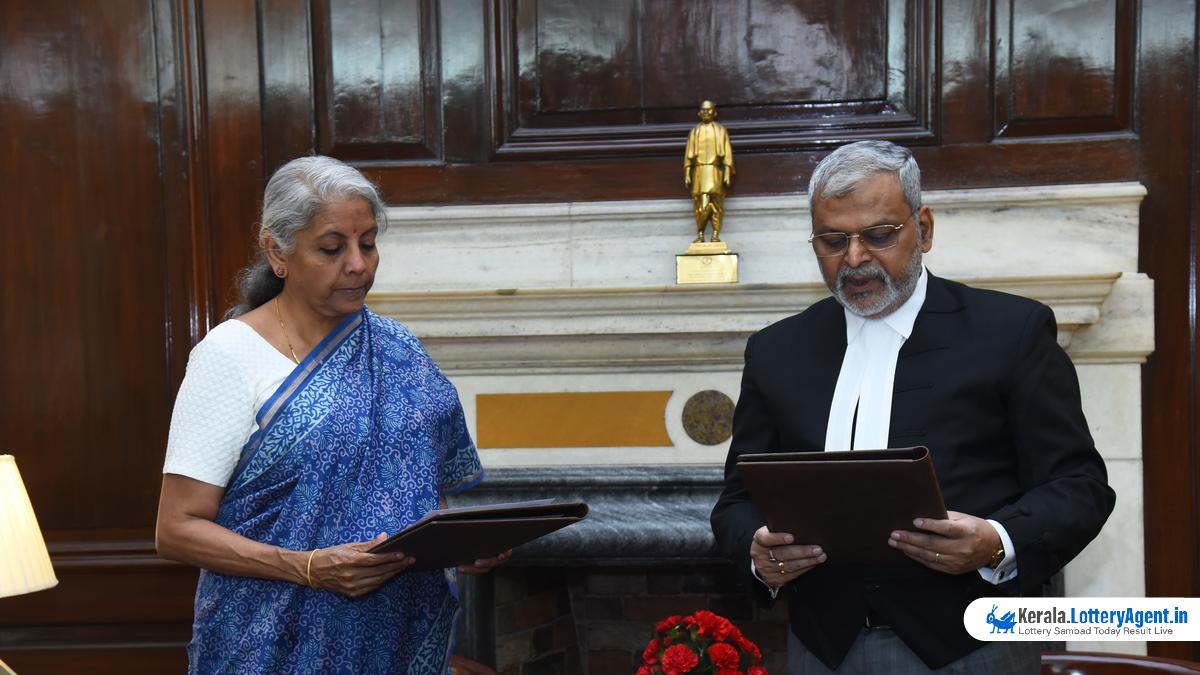
In an important milestone for India’s tax system, Justice (Retd.) Sanjaya Kumar Mishra has been officially inducted as the first President of the Goods and Services Tax Appellate Tribunal (GSTAT). On May 6th, Finance Minister Nirmala Sitharaman presided over the ceremony, administering the oath of integrity and sincerity to Justice Mishra, signifying the formal commencement of the tribunal’s activity in resolving GST-related disputes.
Justice Mishra, a former Chief Justice of the Jharkhand High Court, has received this critical appointment through the recommendations of a Search-cum-Selection Committee led by none other than the Chief Justice of India. His selection marks not only his own distinguished career but also the careful and methodical approach taken by the Indian judiciary and executive in ensuring the GSTAT’s leadership reflects competence and experience.
The establishment of the GST appellate mechanism comes as a highly anticipated development, following the Government’s notification of both a Principal Bench and 31 State Benches of the GSTAT. This extensive network of benches is a testimony to the Government’s preparation for the tribunal’s nationwide reach. Concurrently, the Finance Ministry is advancing the procedure for appointing additional judicial and technical members to staff this extensive scheme. These steps are, decidedly, decisive gestures towards the operational readiness of the GSTAT.
The operationalization of the tribunal is momentous, considering it is set to unfold almost seven years after the historic implementation of the GST regime in the country. The institution of the GSTAT is expected to significantly alleviate the caseload burden on various higher courts, which have been juggling an increasing number of GST disputes as a natural outcome of the regime’s settling-in period.
More critically, the GSTAT is anticipated to pave a path towards swift, fair, and effective resolutions, guaranteeing a judicial process that is considerate not only of timeliness but also of the intricate nature of tax-related adjudications. By providing a specialized forum for appellants dissatisfied with decisions made by GST authorities, the Tribunal is set to instill a greater degree of predictability and stability within the Indian taxation ecosystem.
The implications of the GSTAT’s functionality spread beyond judicial relief and delve into economic consequences. The Finance Ministry, validating this point, emphasizes that the establishment of the GSTAT will not only enhance the dispute resolution framework for GST but will also significantly contribute to the overall effectiveness of the GST system within the country. Such a structured approach to resolving taxation matters is likely to foster a more transparent and efficient tax environment, encouraging compliance and a clearer understanding of the GST laws amongst stakeholders.
Moreover, it’s expected that the institutionalization of the GSTAT will also serve as an impetus for economic growth. Businesses and investors place great value on a taxation framework that offers clarity and quick resolution to disputes. By instilling confidence in the system, the GSTAT is poised to play a role in attracting further investment, both domestic and international, by showcasing India’s commitment to a stable and effective legal system for taxation.
Justice Mishra’s purpose as the GSTAT’s first President is not only symbolic but also foundational, as he stands to influence the tone and tenor of the Tribunal’s functioning from its inception. His herculean task ahead includes overseeing the establishment of a transparent, accessible, and efficient appellate body that can stand the inevitable test of legal and financial scrutiny in the years to come.
From taxpayers to practitioners, from businesses to bureaucracy, the eyes of many are trained on how the GSTAT will chart its course under the stewardship of Justice Mishra. The incipient journey of this tribunal is grounded in optimism, holding the promise of a new chapter in India’s GST narrative — one that ably handles the complexities of modern taxation with the age-old wisdom of the judiciary.












